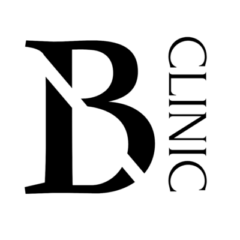Chapter 5 Specialized Substance Abuse Treatment Programs A Guide to Substance Abuse Services for Primary Care Clinicians NCBI Bookshelf
Content
One way that drug and alcohol rehab helps recovering addicts combat this issue is by introducing them to new hobbies and interests such as yoga, art, music, and meditation. These are all different aspects of behavioral therapy at Extra Mile Recovery Center. This helps clients find and develop new hobbies, interests, and social groups both during and after rehab. Recovering from a drug or alcohol addiction may be one of the hardest things you can ever do. It won’t be a quick and easy process, and it requires a lifelong commitment to a sober lifestyle. If you’re getting ready to start rehab and you have questions about what you’ll do once you finish, contact a treatment provider today.

Drug and alcohol withdrawals can be incredibly uncomfortable and, in some cases, can even be life-threatening. A medical detox center can help alleviate these concerns and help you to break through this difficult first stage in the recovery process. The Full Circle Support system is about more than just treating substance abuse. Instead, it is part of our holistic health model that can help people to create lives that are truly worth living in recovery. Just like with plant parenting, the results aren’t instant, but they’re always worth it. Be patient in your recovery process and don’t give up on a new habit or routine just because you aren’t seeing the desired outcome immediately.
Life Events and Trauma
When individuals struggle with alcohol addiction, they generally have self-destructive habits that need to be broken. Practicing self-care probably wasn’t at the top of your list when you were using drugs or alcohol. At alcohol and drug rehabs, life skills activities for sober house adults in recovery include education on ways to practice self-care. Often,
treatment programs will want to coordinate a patient’s treatment with the primary
care provider — such collaboration is essential for certain patients, such as
chemically involved pregnant women.
Therapy is a significant component of substance abuse treatment because addiction is often tied to a person’s emotions and behavioral health. Understanding some of the common challenges people face in addiction recovery may provide clearer insight into a life in recovery. It also may help show the many ways our rehab program is designed to help you through those challenges. Here are some common personal issues you may face while completing a rehab program and how we can help.
Relapse prevention
She specializes in trauma,
substance abuse, LGBTQIA+ community, matters of belonging, helping individuals heal in their
relationships within themselves. In your work together, she will meet you where you are and
support you in reacquainting you, with all parts of yourself, including your inherent wisdom. One thing you’ll notice in pretty much any addiction treatment program is that structure and routine are important. Part of this is just practical; afterall, you can’t just have people showing up for group therapy and other activities whenever they feel like it, or nothing would get done. However, structure also plays an important part in treatment and recovery.
- For example, it’s much easier to go to 12-Step meetings every day at the same time, rather than going at different times or just two or three days a week.
- Many programs make services available in the evenings and on weekends so individuals can continue to work or stay in school.
- Excessive absences will indicate to us that this might not be the right time for you to be in treatment.
Then, clients will learn practical skills that they can use to overcome these struggles in the real world. They can put what they learn into practice as they transition out of inpatient care. Joining an aftercare community can be a powerful way to maintain motivation when recovering from drug and alcohol addiction.
What Is Borderline Personality Disorder?
The goals that treatment facilities focus on include objectives for your physical and emotional health, relationships, and spiritual aspirations. You will learn the tools needed to manage stress, avoid triggering environments, managing triggers when unavoidable, prevent relapse, cope in healthy ways, and create new thought patterns to enable your success upon departure. These conditions may have
contributed to the initial development of a substance use problem or resulted from
the disorder.
Know that you will always have a community of people right behind you, ready to help you whenever you need it. We offer many different services to help you begin your recovery process as soon as you are ready. The continuum of treatment settings, from most intensive to least, includes
inpatient hospitalization, residential treatment, intensive outpatient treatment,
and outpatient treatment. When you adopt a more consistent schedule, you may notice your physical health improves. A better sleep schedule alone can make a significant difference in your energy levels during the day and your overall health. During the first week of sobriety especially, insomnia can be a common issue.
